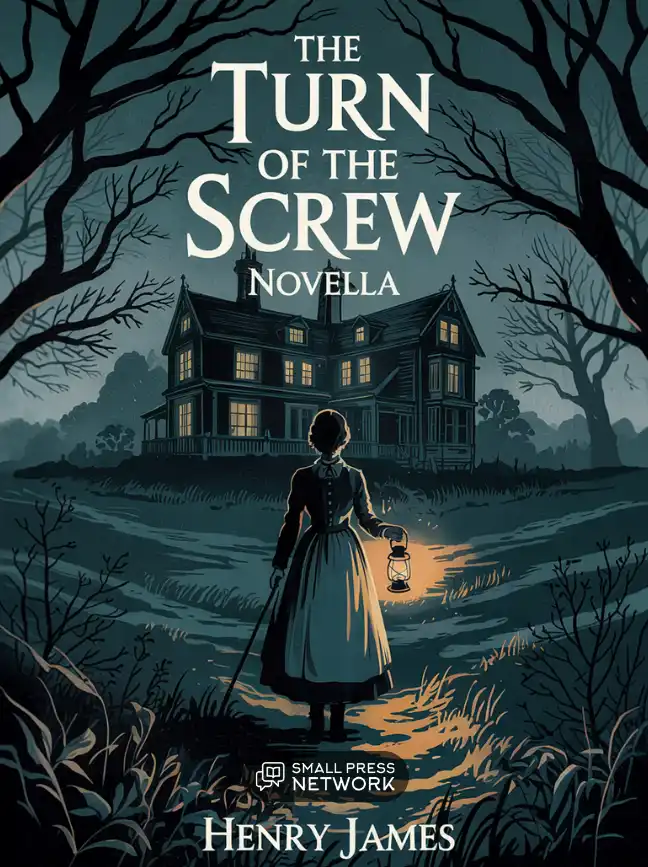CHAPTER 2
The Carpet-Bag
I stuffed a shirt or two into my old carpet-bag, tucked it under my arm,
and started for Cape Horn and the Pacific. Quitting the good city of old
Manhatto, I duly arrived in New Bedford. It was on a Saturday night in
December. Much was I disappointed upon learning that the little packet for
Nantucket had already sailed, and that no way of reaching that place would
offer, till the following Monday.
As most young candidates for the pains and penalties of whaling stop at
this same New Bedford, thence to embark on their voyage, it may as well
be related that I, for one, had no idea of so doing. For my mind was made
up to sail in no other than a Nantucket craft, because there was a fine,
boisterous something about everything connected with that famous old
island, which amazingly pleased me. Besides though New Bedford has of
late been gradually monopolizing the business of whaling, and though in
this matter poor old Nantucket is now much behind her, yet Nantucket was
her great original— the Tyre of this Carthage;—the place where the first
dead American whale was stranded. Where else but from Nantucket did
those aboriginal whalemen, the Red-Men, first sally out in canoes to give
chase to the Leviathan? And where but from Nantucket, too, did that first
adventurous little sloop put forth, partly laden with imported cobblestones
—so goes the story— to throw at the whales, in order to discover when they
were nigh enough to risk a harpoon from the bowsprit?
Now having a night, a day, and still another night following before me in
New Bedford, ere I could embark for my destined port, it became a matter
of concernment where I was to eat and sleep meanwhile. It was a very
dubious-looking, nay, a very dark and dismal night, bitingly cold and
cheerless. I knew no one in the place. With anxious grapnels I had sounded
my pocket, and only brought up a few pieces of silver,—So, wherever you
go, Ishmael, said I to myself, as I stood in the middle of a dreary street
shouldering my bag, and comparing the gloom towards the north with the
darkness towards the south—wherever in your wisdom you may conclude
to lodge for the night, my dear Ishmael, be sure to inquire the price, and
don’t be too particular.
With halting steps I paced the streets, and passed the sign of “The
Crossed Harpoons”—but it looked too expensive and jolly there. Further
on, from the bright red windows of the “Sword-Fish Inn,” there came such
fervent rays, that it seemed to have melted the packed snow and ice from
before the house, for everywhere else the congealed frost lay ten inches
thick in a hard, asphaltic pavement,—rather weary for me, when I struck
my foot against the flinty projections, because from hard, remorseless
service the soles of my boots were in a most miserable plight. Too
expensive and jolly, again thought I, pausing one moment to watch the
broad glare in the street, and hear the sounds of the tinkling glasses within.
But go on, Ishmael, said I at last; don’t you hear? get away from before the
door; your patched boots are stopping the way. So on I went. I now by
instinct followed the streets that took me waterward, for there, doubtless,
were the cheapest, if not the cheeriest inns.
Such dreary streets! Blocks of blackness, not houses, on either hand, and
here and there a candle, like a candle moving about in a tomb. At this hour
of the night, of the last day of the week, that quarter of the town proved all
but deserted. But presently I came to a smoky light proceeding from a low,
wide building, the door of which stood invitingly open. It had a careless
look, as if it were meant for the uses of the public; so, entering, the first
thing I did was to stumble over an ash-box in the porch. Ha! thought I, ha,
as the flying particles almost choked me, are these ashes from that
destroyed city, Gomorrah? But “The Crossed Harpoons,” and the “The
Sword-Fish?”—this, then must needs be the sign of “The Trap.” However, I
picked myself up and hearing a loud voice within, pushed on and opened a
second, interior door.
It seemed the great Black Parliament sitting in Tophet. A hundred black
faces turned round in their rows to peer; and beyond, a black Angel of
Doom was beating a book in a pulpit. It was a negro church; and the
preacher’s text was about the blackness of darkness, and the weeping and
wailing and teeth-gnashing there. Ha, Ishmael, muttered I, backing out,
Wretched entertainment at the sign of ‘The Trap!’
Moving on, I at last came to a dim sort of light not far from the docks,
and heard a forlorn creaking in the air; and looking up, saw a swinging sign
over the door with a white painting upon it, faintly representing a tall
straight jet of misty spray, and these words underneath—”The Spouter Inn:
—Peter Coffin.”
Coffin?—Spouter?—Rather ominous in that particular connexion,
thought I. But it is a common name in Nantucket, they say, and I suppose
this Peter here is an emigrant from there. As the light looked so dim, and the
place, for the time, looked quiet enough, and the dilapidated little wooden
house itself looked as if it might have been carted here from the ruins of
some burnt district, and as the swinging sign had a poverty-stricken sort of
creak to it, I thought that here was the very spot for cheap lodgings, and the
best of pea coffee.
It was a queer sort of place—a gable-ended old house, one side palsied as
it were, and leaning over sadly. It stood on a sharp bleak corner, where that
tempestuous wind Euroclydon kept up a worse howling than ever it did
about poor Paul’s tossed craft. Euroclydon, nevertheless, is a mighty
pleasant zephyr to any one in-doors, with his feet on the hob quietly
toasting for bed. In judging of that tempestuous wind called Euroclydon,”
says an old writer—of whose works I possess the only copy extant—”it
maketh a marvellous difference, whether thou lookest out at it from a glass
window where the frost is all on the outside, or whether thou observest it
from that sashless window, where the frost is on both sides, and of which
the wight Death is the only glazier.” True enough, thought I, as this passage
occurred to my mind—old black-letter, thou reasonest well. Yes, these eyes
are windows, and this body of mine is the house. What a pity they didn’t
stop up the chinks and the crannies though, and thrust in a little lint here
and there. But it’s too late to make any improvements now. The universe is
finished; the copestone is on, and the chips were carted off a million years
ago. Poor Lazarus there, chattering his teeth against the curbstone for his
pillow, and shaking off his tatters with his shiverings, he might plug up both
ears with rags, and put a corn-cob into his mouth, and yet that would not
keep out the tempestuous Euroclydon. Euroclydon! says old Dives, in his
red silken wrapper—(he had a redder one afterwards) pooh, pooh! What a
fine frosty night; how Orion glitters; what northern lights! Let them talk of
their oriental summer climes of everlasting conservatories; give me the
privilege of making my own summer with my own coals.
But what thinks Lazarus? Can he warm his blue hands by holding them
up to the grand northern lights? Would not Lazarus rather be in Sumatra
than here? Would he not far rather lay him down lengthwise along the line
of the equator; yea, ye gods! go down to the fiery pit itself, in order to keep
out this frost?
Now, that Lazarus should lie stranded there on the curbstone before the
door of Dives, this is more wonderful than that an iceberg should be moored
to one of the Moluccas. Yet Dives himself, he too lives like a Czar in an ice
palace made of frozen sighs, and being a president of a temperance society,
he only drinks the tepid tears of orphans.
But no more of this blubbering now, we are going a-whaling, and there is
plenty of that yet to come. Let us scrape the ice from our frosted feet, and
see what sort of a place this “Spouter” may be.




